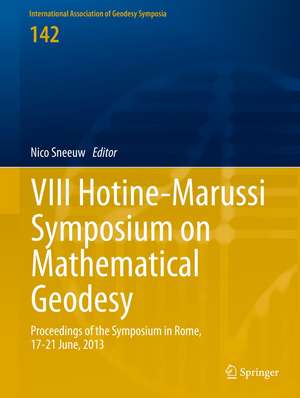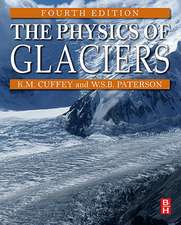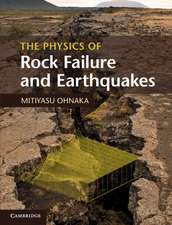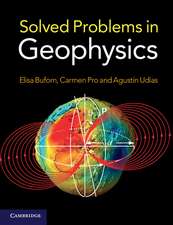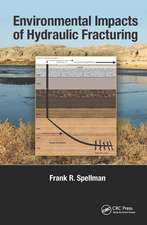VIII Hotine-Marussi Symposium on Mathematical Geodesy: Proceedings of the Symposium in Rome, 17-21 June, 2013: International Association of Geodesy Symposia, cartea 142
Editat de Nico Sneeuw, Pavel Novák, Mattia Crespi, Fernando Sansòen Limba Engleză Hardback – 19 mai 2016
This book contains a selection of peer-reviewed papers presented at the VIII Hotine-Marussi Symposium on Mathematical Geodesy in Rome, 17-21 June, 2013. The scientific sessions focused on global reference systems, geodetic data analysis, geopotential modelling, gravity field mapping as well as digital terrain modelling. A special chapter is dedicated to understand the generation of Flash.
| Toate formatele și edițiile | Preț | Express |
|---|---|---|
| Paperback (1) | 957.75 lei 6-8 săpt. | |
| Springer International Publishing – 9 dec 2018 | 957.75 lei 6-8 săpt. | |
| Hardback (1) | 808.29 lei 38-45 zile | |
| Springer International Publishing – 19 mai 2016 | 808.29 lei 38-45 zile |
Din seria International Association of Geodesy Symposia
- 15%
 Preț: 660.49 lei
Preț: 660.49 lei - 18%
 Preț: 956.81 lei
Preț: 956.81 lei - 18%
 Preț: 958.38 lei
Preț: 958.38 lei -
 Preț: 440.22 lei
Preț: 440.22 lei -
 Preț: 430.59 lei
Preț: 430.59 lei -
 Preț: 435.38 lei
Preț: 435.38 lei -
 Preț: 405.28 lei
Preț: 405.28 lei - 15%
 Preț: 662.62 lei
Preț: 662.62 lei - 15%
 Preț: 641.38 lei
Preț: 641.38 lei - 15%
 Preț: 642.03 lei
Preț: 642.03 lei - 15%
 Preț: 640.55 lei
Preț: 640.55 lei - 15%
 Preț: 666.89 lei
Preț: 666.89 lei - 18%
 Preț: 975.29 lei
Preț: 975.29 lei - 15%
 Preț: 661.14 lei
Preț: 661.14 lei - 15%
 Preț: 655.45 lei
Preț: 655.45 lei - 15%
 Preț: 644.18 lei
Preț: 644.18 lei - 15%
 Preț: 666.24 lei
Preț: 666.24 lei - 15%
 Preț: 679.00 lei
Preț: 679.00 lei - 15%
 Preț: 662.30 lei
Preț: 662.30 lei - 20%
 Preț: 579.46 lei
Preț: 579.46 lei - 20%
 Preț: 566.39 lei
Preț: 566.39 lei - 24%
 Preț: 1640.04 lei
Preț: 1640.04 lei - 18%
 Preț: 1228.62 lei
Preț: 1228.62 lei - 18%
 Preț: 957.62 lei
Preț: 957.62 lei - 20%
 Preț: 571.23 lei
Preț: 571.23 lei - 18%
 Preț: 1221.69 lei
Preț: 1221.69 lei - 18%
 Preț: 1234.94 lei
Preț: 1234.94 lei - 24%
 Preț: 1074.62 lei
Preț: 1074.62 lei - 24%
 Preț: 1633.19 lei
Preț: 1633.19 lei - 24%
 Preț: 1199.25 lei
Preț: 1199.25 lei - 24%
 Preț: 1080.15 lei
Preț: 1080.15 lei - 24%
 Preț: 1549.43 lei
Preț: 1549.43 lei - 18%
 Preț: 1232.89 lei
Preț: 1232.89 lei - 18%
 Preț: 1280.86 lei
Preț: 1280.86 lei - 24%
 Preț: 1069.44 lei
Preț: 1069.44 lei - 18%
 Preț: 1238.56 lei
Preț: 1238.56 lei - 24%
 Preț: 1142.96 lei
Preț: 1142.96 lei
Preț: 808.29 lei
Preț vechi: 1063.55 lei
-24% Nou
Puncte Express: 1212
Preț estimativ în valută:
154.67€ • 165.39$ • 128.96£
154.67€ • 165.39$ • 128.96£
Carte tipărită la comandă
Livrare economică 14-21 aprilie
Preluare comenzi: 021 569.72.76
Specificații
ISBN-13: 9783319245485
ISBN-10: 3319245481
Pagini: 240
Ilustrații: XIV, 340 p.
Dimensiuni: 210 x 279 mm
Ediția:1st ed. 2016
Editura: Springer International Publishing
Colecția Springer
Seria International Association of Geodesy Symposia
Locul publicării:Cham, Switzerland
ISBN-10: 3319245481
Pagini: 240
Ilustrații: XIV, 340 p.
Dimensiuni: 210 x 279 mm
Ediția:1st ed. 2016
Editura: Springer International Publishing
Colecția Springer
Seria International Association of Geodesy Symposia
Locul publicării:Cham, Switzerland
Public țintă
ResearchCuprins
Part I Lincei session.- Opening remarks for the 2013 Hotine-Marussi symposium.- Fernado Sansò laudation.- Global Reference Systems: Theory and open questions.- Part II Geodetic data analysis.- Noise analysis of continuous GPS time series of selected EPN stations to investigate variations in stability of monument types.- Improvement of Least-Squares Collocation error estimates using local GOCE Tzz signal standard deviations.- Multivariate Integer Cycle-Slip Resolution: A Single-Channel Analysis.- Theory of Earth Rotation Variations.- Variable seasonal and subseasonal oscillations in sea level anomaly data and their impact on prediction accuracy.- Permanent GPS networks in Italy: analysis of time series noise.- VADASE: state of the art and new developments of a third way to GNSS Seismology.- On the spatial resolution of homogeneous isotropic filters on the sphere.- On time-variable seasonal signals: comparison of SSA and Kalman filtering based approach.- Extensive analysis of IGS REPRO1 coordinate time series.- Part III Geopotential modeling, boundary value problems and height systems.- Determination of W0 from the GOCE measurements using the method of fundamental solutions.- Combination of GOCE gravity gradients in regional gravity field modelling using radial basis functions.- Rosborough representation in satellite gravimetry.- Combining Different Types of Gravity Observations in Regional Gravity Modeling in Spherical Radial Basis Functions.- Height Datum Unification by Means of the GBVP Approach Using Tide Gauges.- Computation of Zenith Total Delay Correction
Fields using Ground-Based GNSS.- Rigorous interpolation of atmospheric state parameters for ray-traced tropospheric delays.- Comparison of different techniques for tropospheric wet delay retrieval over South America and surrounding oceans.- Part V Gravity field mapping methodology from GRACE and future gravity missions.- The role of position information for the analysis of K-Band data – experiences from GRACE and GOCE for GRAIL gravity field recovery.- Gravity field mapping from GRACE: different approaches – same results?.- The effect of pseudo-stochastic orbit parameters on GRACE monthly gravity fields – insights from lumped coefficients.- On an iterative approach to solving the nonlinear satellite-fixed geodetic boundary-value problem.- An OpenCL implementation of ellipsoidal harmonics.- A remark on the computation of the gravitational potential of masses with linearly varying density.- The observation equation of spirit leveling in Molodensky’s context.- Reference station weighting and frame optimality in minimally constrained networks.- Atmospheric loading and mass variation effects on the SLR-defined geocenter.- Part VIII Digital Terrain Modeling, Synthetic Aperture Radar and new sensors: theory and methods.- Radargrammetric Digital Surface Models Generation from High Resolution Satellite SAR Imagery: Methodology and Case Studies.- Principles and applications of polarimetric SAR tomography for the characterization of complex environments.- Merging local DTMs: methodological problems and practical solutions on heli-dem case study.- Part IX Inverse modeling, estimation theory.- Single-Epoch GNSS Array Integrity: an Analytical Study.- Global to local Moho estimate based on GOCE geopotential model and local gravity data.- An overview of adjustment methods for mixed additive and multiplicative random error models.- Cycle slip detection and correction for heading determination with low-cost GPS/ INS receivers.- Adjusting the errors-in-variables model: linearized least-squares vs. nonlinear total least-squares.- Multivariate GNSS Attitude Integrity: the Role of Affine Constraints.- Integrating geological prior information into the inverse gravimetric problem: the Bayesian approach.- Effects of Different Objective Functions in Inequality Constrained and Rank-Deficient Least-Squares Problems.
Recenzii
Textul de pe ultima copertă
This volume contains the proceedings of the VIII Hotine-Marussi Symposium on Mathematical Geodesy, which was held June 17 to 21, 2013, in Rome, Italy. Since 2006 the series of Hotine-Marussi Symposia is under the responsibility of the InterCommission Committee on Theory (ICCT), a cross-commission entity within the International Association of Geodesy (IAG). The overall goal of the Hotine-Marussi Symposia has always been the advancement of theoretical geodesy. The 39 papers in these proceedings areindeed testimony to the width and vibrancy of theoretical geodesy.
The Symposium was organized in 8 topical sessions reflecting all branches of geodesy: from geodetic data analysis through potential field modeling to estimation theory. Also theoretical aspects of reference frames and of novel sensors were covered. During a special session at the AccademiaNazionaledeiLinceiFernando Sansò was put into the spotlight in order to acknowledge his long-term commitment and dedication as thedriving force behind the series of Hotine-Marussi Symposia over the past decades.
The Symposium was organized in 8 topical sessions reflecting all branches of geodesy: from geodetic data analysis through potential field modeling to estimation theory. Also theoretical aspects of reference frames and of novel sensors were covered. During a special session at the AccademiaNazionaledeiLinceiFernando Sansò was put into the spotlight in order to acknowledge his long-term commitment and dedication as thedriving force behind the series of Hotine-Marussi Symposia over the past decades.
Caracteristici
Selection of peer-reviewed contributions of the VIII Hotine-Marussi Symposium on Mathematical Geodesy, 2013 Presents numerous step-by-step tutorials Includes ten tips on how to protect flash sites from hackers
